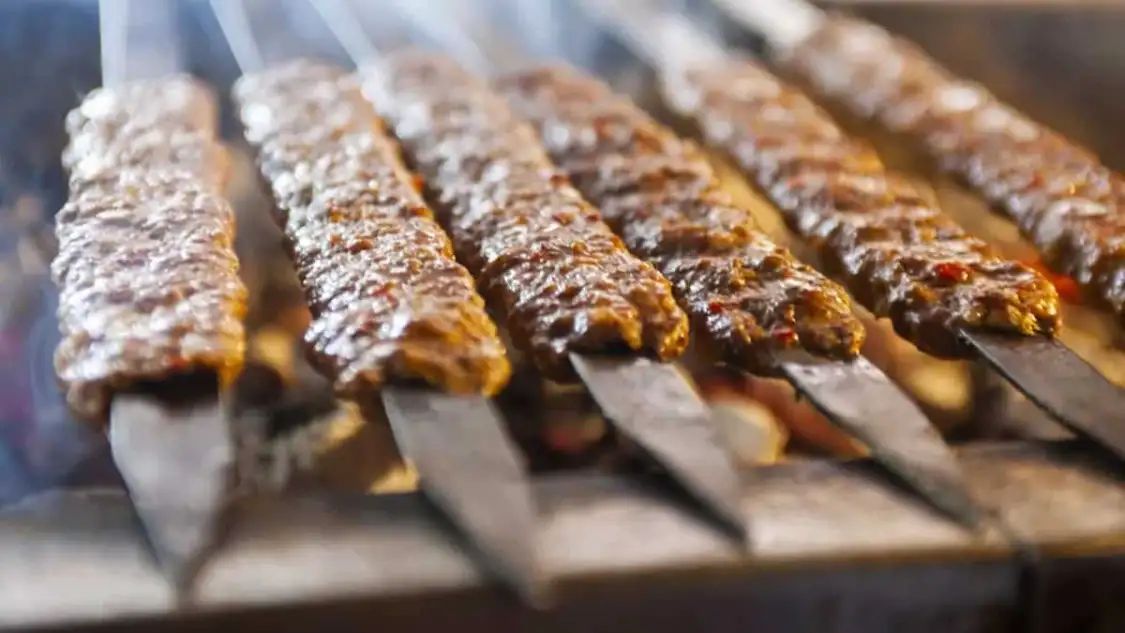Doner To Adana, The Realm Of Turkish Kebabs Is Rich Indeed

most Indian cities share a similar aroma – that of marinated meat being roasted slowly over red hot coal, either on a brazier or skewered through, with the vendor frenetically fanning the flames and rotating it to ensure that it is well cooked.
This activity is accompanied by the sight of people waiting their turn to dig into the kebab, as is with some lime juice squeezed over it, or wrapped into a roti. This constitutes a snack, a treat and a meal, and sometimes all of it together. And it is something that Indians never seem to tire of.
The kebab is truly universal and inclusive as its welcoming nature can envelope everyone, especially now that it has vegetarian and vegan variants too. However, few know that this humble dish has traversed high seas and sandy dunes to reach Indian shores.
‘Kebab’ stems from the Persian word ‘kabab’, which means to ‘roast’ or ‘fry’. While its exact birthplace is still debated, there is plenty of evidence to suggest that it originated in Persia, Mesopotamia, or Central Asia.





